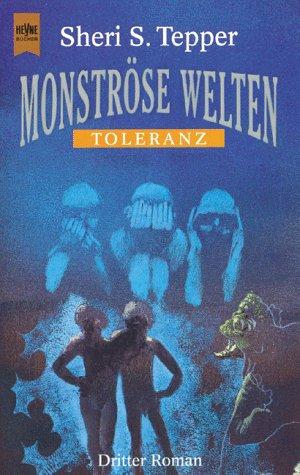namnatulco started reading Toleranz by Sheri S. Tepper

Toleranz by Sheri S. Tepper
Third book of Monströse Welten (translation of the Arbai trilogy), original english title Sideshow.
@namnatulco@sueden.social
This link opens in a pop-up window

Third book of Monströse Welten (translation of the Arbai trilogy), original english title Sideshow.

When the human settlers arrived on Hobbs Land, the native intelligent species, the Owlbrit, were already almost extinct. Before the …

When the human settlers arrived on Hobbs Land, the native intelligent species, the Owlbrit, were already almost extinct. Before the …
Content warning vague spoilers
A queer love story and tragedy in the middle of a horrific war and ethnic hatred, a constant display of the banality of patriarchy and the harm it causes, about trauma, hope and loss.

German translation from Finnish

German translation from Finnish

Translation from Japanese (Kanojo No Neko)

Translation from Japanese (Kanojo No Neko)

Translated from English
There are some interesting bits, but the writing is just totally scatterbrained, it reads in part like overt appropriation and it seems like no thought survives more than a few pages, sufficient only to vibe towards the general theme. It might be great for some, but it's not for me.
There are some interesting bits, but the writing is just totally scatterbrained, it reads in part like overt appropriation and it seems like no thought survives more than a few pages, sufficient only to vibe towards the general theme. It might be great for some, but it's not for me.




Translated from English